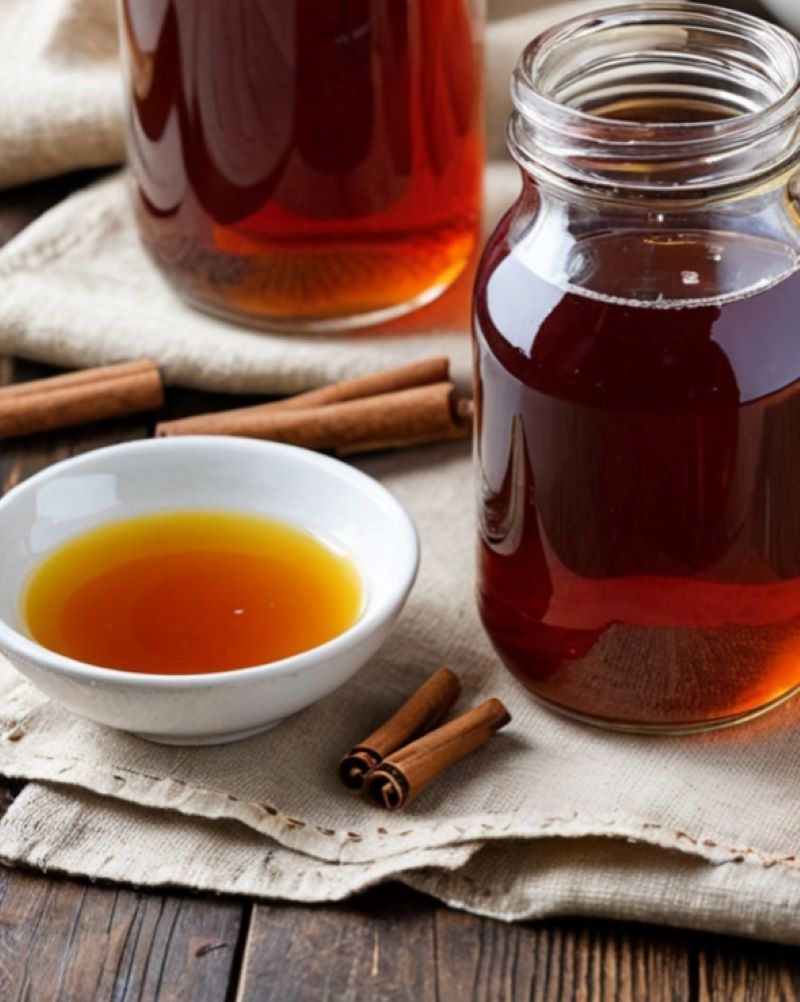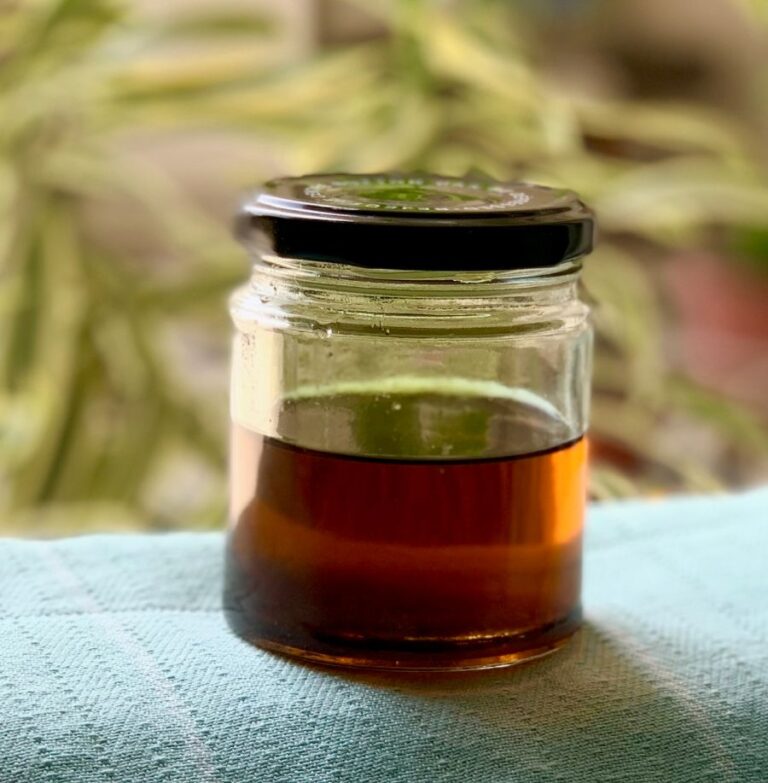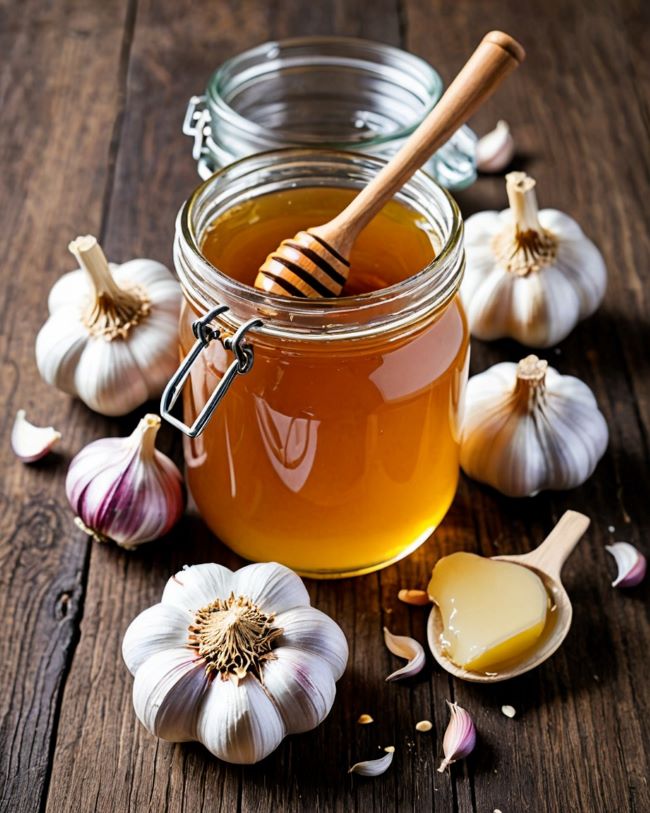Natural Cough Syrup for Dry Cough
This is one of the best natural cough syrups for dry cough. When everything else fails, this will definitely work. Give this a shot!
I made this syrup for the first time in 2017 when I was down with flu. It had been over 2 weeks that my cough just wouldn’t go away. I consulted doctors, took all the medicines prescribed but nothing seem to work for me. I still can’t forget those morning bouts of dry cough which literally made me eyes watery.
They say necessity is mother of all inventions. It was then I remembered as kids what all my mother and my grandmother gave us when we were down with cough. I combined all those powerful ingredients and the result was this effective dry cough syrup which never seems to fail me.
2 days of this syrup and I noticed a huge difference in my cough. Those morning bouts of dry cough miraculously seemed to disappear. What all the prescribed medicines couldn’t do in week, this syrup did it in just 2 days. And now i can’t wait to share this with you guys.
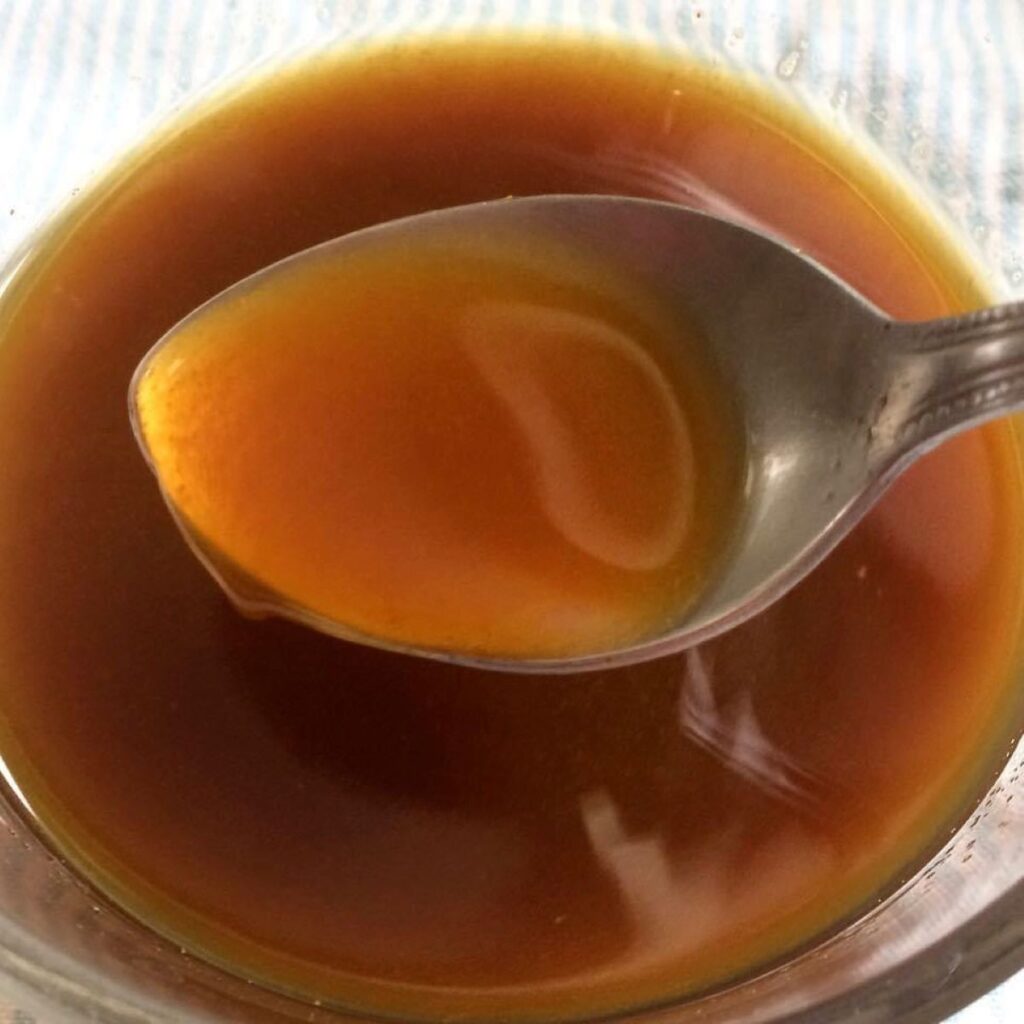
Homemade cough syrups can give a great relief from dry, persistent and productive cough. This is one of the best cough syrup for dry cough for kids and adults that will soothe your throat to give relieve from pain and moisten your throat and upper airways and will help reduce the cough reflex.
Seasonal changes can trigger allergies, cold, cough, fever and flu but remedy to all these seasonal ailments is right in your kitchen. We just have to know what to use when. Here’s an age-old cough remedy which can be made in just few minutes.
Ingredients and their Benefits
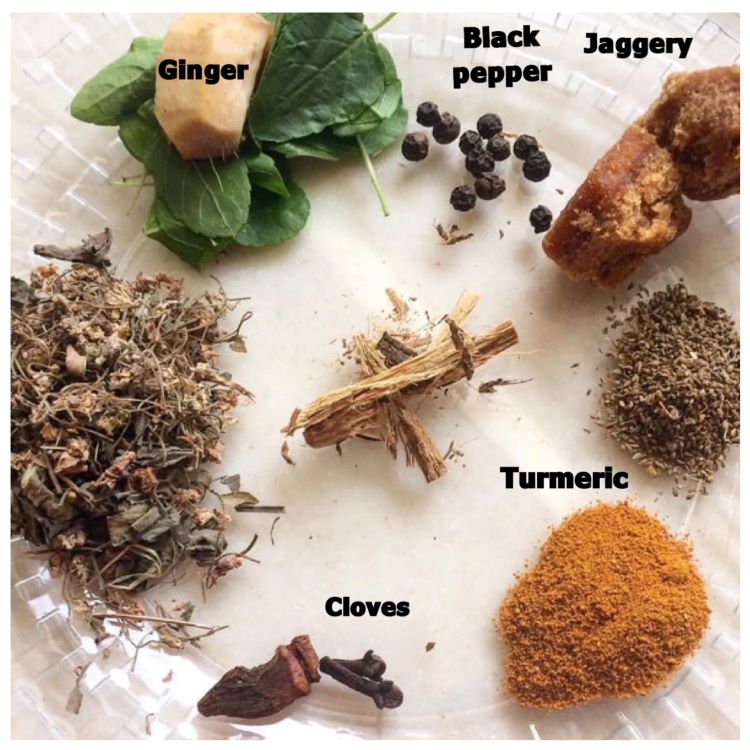
1. Holy Basil Leaves (Tulsi)
Tulsi is a holy plant that has both medicinal and spiritual properties. In Ayurveda, it is known by different names such as “Mother Medicine of Nature” and “The Queen of Herbs”. Tulsi is beneficial in relieving cough symptoms because it is anti-inflammatory, antibacterial, antimicrobial and antitussive (cough relieving) and anti-allergic properties. It works wonders for our immune system and helps our body steer clear of harmful pathogens.
2. Ginger (Adarak)
The most notable bioactive compounds in ginger are gingerols and shogaols. Studies show that these compounds have anti-inflammatory properties that can help control or reduce the risk of many diseases, including a sore throat. The anti-inflammatory effect of ginger can relieve a cough or sore throat by reducing inflammation.
3. Fresh Raw Turmeric Root (Kacchi Haldi)
Turmeric contains a yellow pigment called curcumin which has significant anti-inflammatory, antiviral and antibacterial properties. Practitioners of Ayurvedic medicine have used turmeric to treat inflammatory diseases for hundreds of years. Ginger and turmeric are in-fact the two most extensively studied ingredients in herbal medicine. Its anti-inflammatory properties helps to soothe inflamed airways and improve breathing.
4. Black Pepper (Kali Mirch)
Black pepper contains a chemical called piperine. This chemical seems to have many effects in the body. It seems to reduce pain, improve breathing, and reduce inflammation. For productive cough, black pepper is the simplest home remedy. Black pepper has expectorant properties that help reduce symptoms associated with cough and cold. It helps to thin the mucus making it easier for the body to expel excess mucus. Also, black pepper helps to increase the bioavailability of curcumin by almost 200%.
5. Cloves (Laung)
Clove contains compounds that helps to soothe cough and respiratory discomfort. It is a fantastic expectorant, helping to thin mucus and make it easier to expel. They are particularly helpful for those with phlegmy coughs. Clove also acts as a natural cough suppressant and a natural painkiller, calming the cough reflex, soothing sore throat and allowing for better sleep and daily comfort.
6. Carom Seeds (Ajwain)
Since ages, carom seed or ajwain has been used for treating seasonal ailments like cough and cold by boosting your body’s immunity. Ajwain contains thymol which has antiseptic and anti-inflammatory properties. In Ayurveda, carom seeds are specially used for fighting cough, cold and throat issues. It helps to give relief from congestion also may help to widen the bronchial tubes, which can help those with asthma.
7. Viola Odorata or Sweet Violet Flower (Banafsha)
This is the hero ingredient of this remedy. Please do not skip it! You can find it online or at any departmental store in your local market. Banafsha is a medicinal herb which has a long and proven history in the treatment of whooping cough, dry cough, cold and flu. The properties present in it helps in removing the mucus deposited in lungs. It expectorates phlegm from the chest and relieves chest pain and pneumonia.
8. Liquorice (Mulethi)
Consuming on mulethi or liquorice sticks is an age old remedy for sore throat. Its expectorant and bronchodilator properties help with conditions like whooping cough, asthma, dry cough and bronchitis. This is to help clear excess mucus from the upper and lower airways.
9. Jaggery (Gur)
Jaggery is a scientifically proven lung cleanser. It aids in the removal of toxins from the body, which includes the respiratory system. This cleansing process can lead to healthier lungs and airways. This makes it a super effective remedy for bronchitis, wheezing, asthma, and other breathing disorders. The expectorant properties of jaggery can also help in clearing phlegm and congestion from chest and throat.
Homemade Natural Cough Syrup for Persistent and Dry Cough
Ingredients
- 10-12 leaves Holy Basil (Tulsi)
- 1 inch Ginger
- 1 inch Raw Turmeric Root (check notes for substitute)
- 10-12 Black Peppercorns
- 2 Cloves
- 1 tsp Carom Seeds
- 1 tbsp Banafsha
- 1 Liquorce
- 2 tbsps Jaggery (check notes for substitute)
- 300 ml Water
Instructions
- In a mortar pestle, crush ginger, raw turmeric, cloves, liquorice (mulethi) and black peppercorns.
- Take roughly 300 ml water in a pan, add all the crushed ingredients, carom seeds, tulsi leaves and banafsha.
- Let this concoction simmer till the water reduces to 1/4th. Remove from the flame. Add jaggery and mix it it dissolves.
- Cover and let it all rest for 1 or 2 hours and then sieve it.
- Store this syrup in a glass bottle for maximum 2 days. You can also make it fresh everyday.
- Take 10 to 15 ml of this syrup at a time followed by warm water.
- You can take this syrup twice or thrice in a day depending upon the severity.
Notes
- If raw turmeric root is unavailable, you can choose organic turmeric powder.
- You can also replace jaggery with honey. Just make sure to use raw honey. Look for words like raw, unprocessed or unpasteurized honey on the label and not organic.
- Do not add honey to hot syrup. Add honey after sieving the syrup and when the syrup is at room temperature.
Give this natural remedy a try and let me know how it worked for you in the comments! I’d love to hear if it brought you some relief or if you added your own twist. Your experience could help someone else too! 🌿💬

